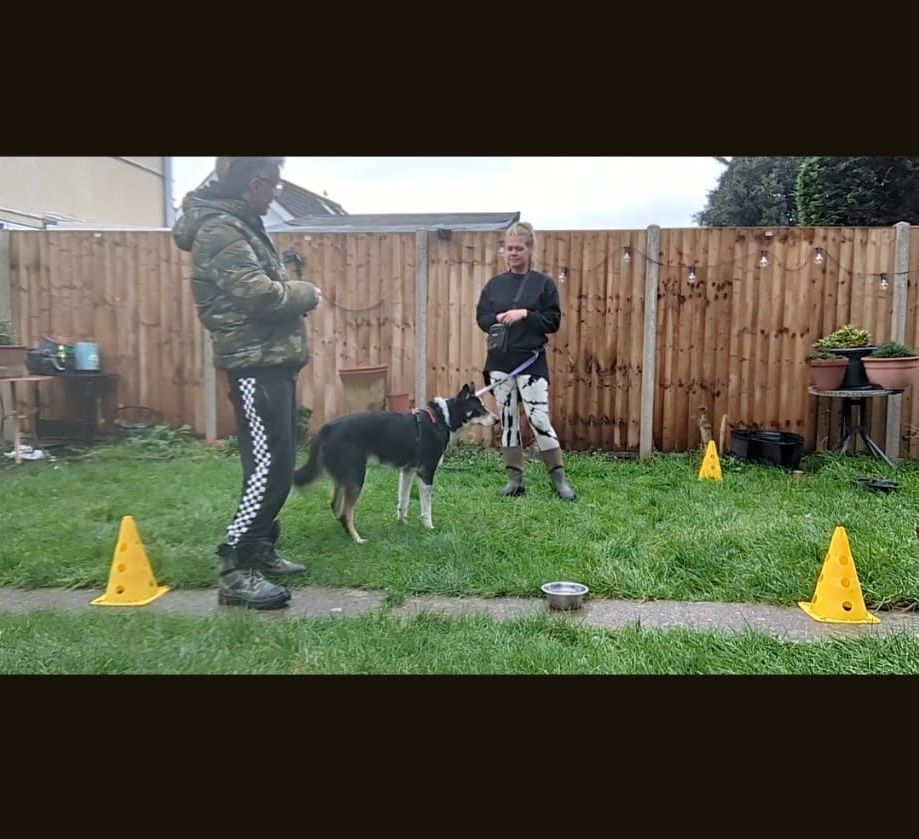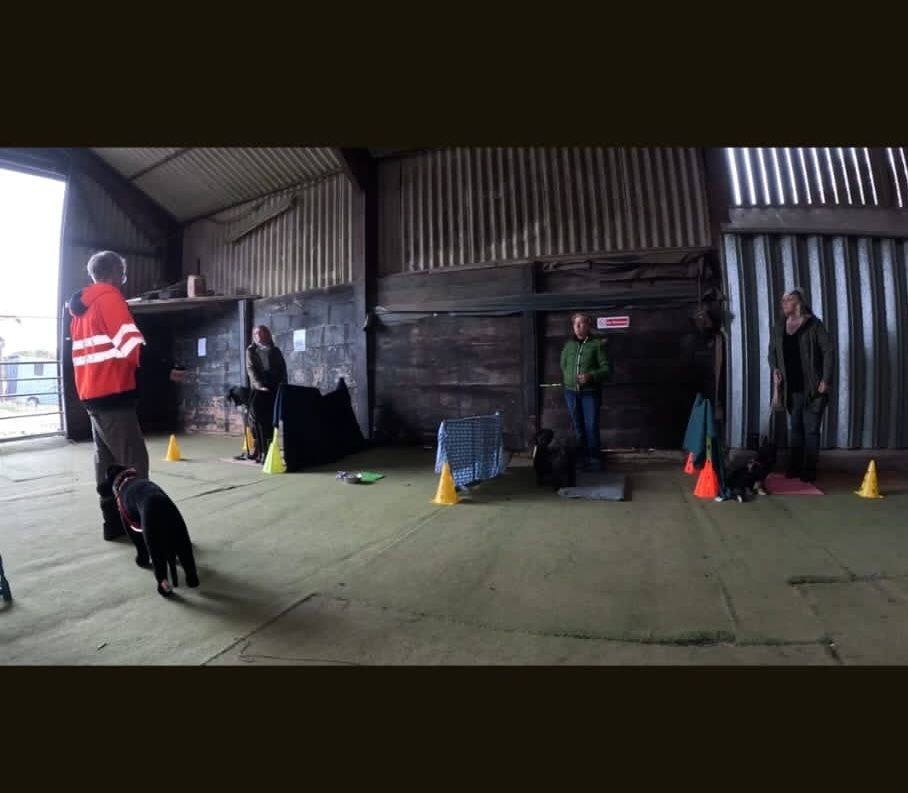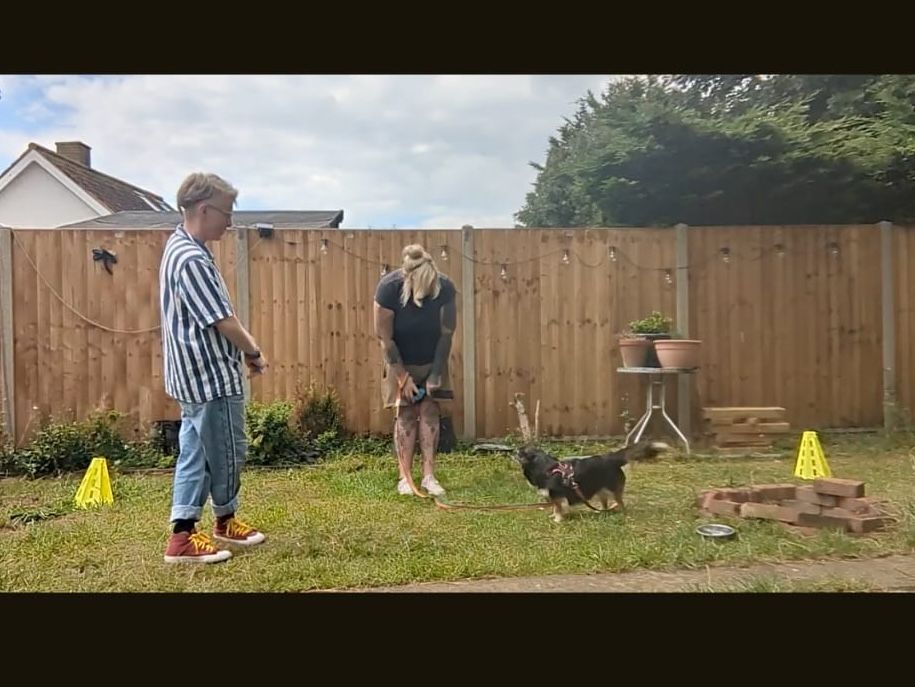
My journey & inspiration!
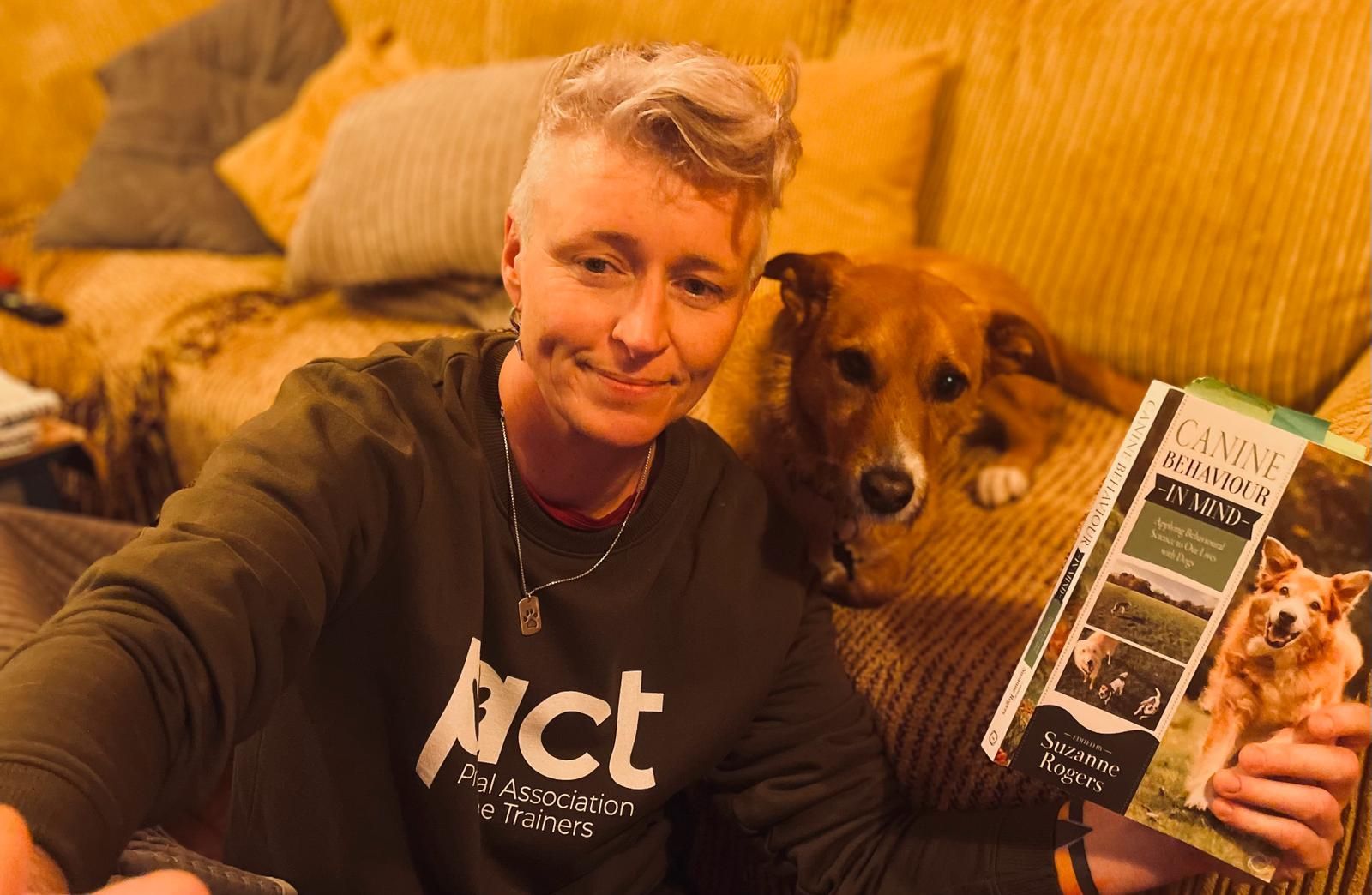
I have worked with human trauma and how it can present later in life for over 15 years across Dublin and Brighton. Human and Canine Trauma can overlap hugely and this is where I have a deeper understanding of what causes dogs to behave the way they do. Through using a Trauma informed approach via a Dog Centric lens, I promote and practice ethical training methods to address unwanted behaviour in dogs. During these years spent in Social Care, I would travel, where possible, and volunteer in Dog Rescue centres worldwide. I quickly became fixated with street dogs and humans’ thoughts and attitudes towards these vulnerable and abandoned souls. In 2015, I moved to Brighton, where I was accepted onto an animal science degree, I never started this degree and I am happy with that decision. A few more years of Social Care, with time spent as a volunteer ambulance driver for WRAS and helping out, when I can, with FOX-A-GON, I am now on the right career path, at the right time.
My inspiration
During Lockdown, our 16-year-old dog Wendy, developed Cognitive Canine Decline (CCD), an awful illness very similar to Alzheimer’s in humans. With very little research done on this condition, she really inspired me to want to understand my favourite species more, and study them, in some capacity. In October 2022 along came Theo, our Spanish Podengerrier! A complex Dog indeed! A lockdown street pup from Spain, with a fondness for eating tissues, he has experienced unknown traumas which have presented themselves in the form of sudden movement startle response, musculoskeletal issues and a sensitive gut which had been colonised by Giardia.
Navigating the unregulated world of Dog Training
I would like to talk a bit about qualifications/accreditations in an unregulated industry (Dog Training and Behaviour) and my personal experience leading up to this point.
Distance Learning courses seemed flaky, unregulated and in abundance! I spent months researching courses, emailing Clinical Animal Behaviourists far and wide; I moved to Brighton to specifically study an animal related degree, to realise neither University here offered a course I needed to become a Behaviourist.
In basic terms, an individual registered with the ABTC (The Animal Behaviour and Training Council) is continuously assessed and monitored to make sure they meet the highest ethical standards while practising. On this site, I discovered PACT (Professional Association of Canine Trainers) an ethical online course provider consisting of a small team of like-minded individuals, offering comprehensive and most importantly, hybrid, distance learning courses (Level 4 and 5) which result in a level 4 ATI qualification (Animal Training Instructor) followed by an ABT level 5 qualification (Animal Behaviour Technician).
Please ask your Trainer or Behaviourist who they studied with, for how long and look out for logos on their website (ABTC/APBC) so you can do your own research. Of course, there are other good Distance Learning providers out there (Compass Education) and other reputable bodies professionals can join once qualified (APBC, FABC)
You can always check the ABTC register for a list of education providers deemed to be professionally equipped and who must meet certain standards, engage in CPD and meet specific codes of conduct. Their site also provides a list of trainer and behaviourists via an easy search by area tool.
This recognition means I meet all of the educational requirements to be eligible to join the ABTC register as an ATI or ABT. The ABTC register is the only list of dog trainers recommended by the RSPCA, Blue Cross and the Dogs Trust.
You and your dog need to benefit from exploring training and behaviour. I believe you and your 4 paws need safeguarding too! If someone is hesitant to mention their study pathway, then please remain cautious. A professional practitioner will post their qualifications and associated logos on their website.
We are all still learning, and we will continue to do so for eternity!
I hope this has helped make some sense of an industry which sadly still allows people to use shock and prong collars, a ‘’quick fix’’ which teach the dog nothing but to exist in a constant state of fear.
Let’s bring our community together, and give our Dogs everything they deserve – understanding, empathy and time – behavioural work takes time, but I think we can all agree, they are so very worth it!
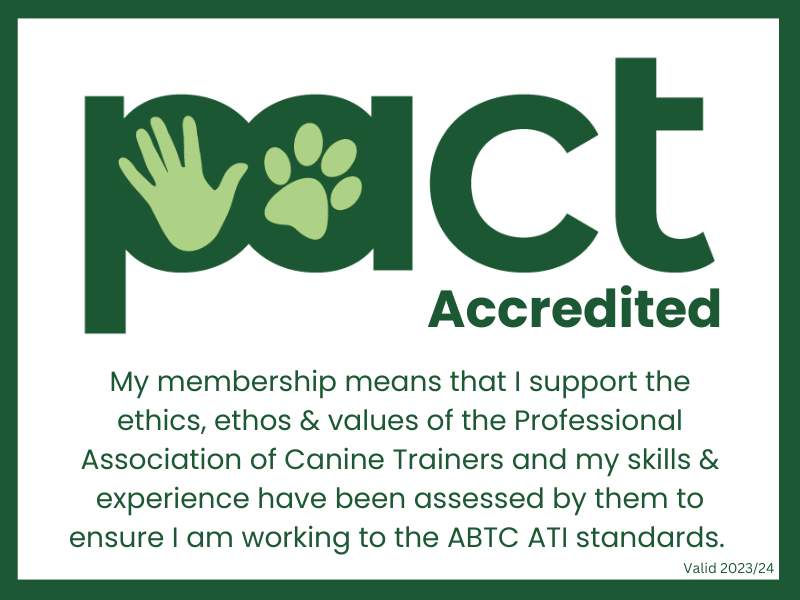
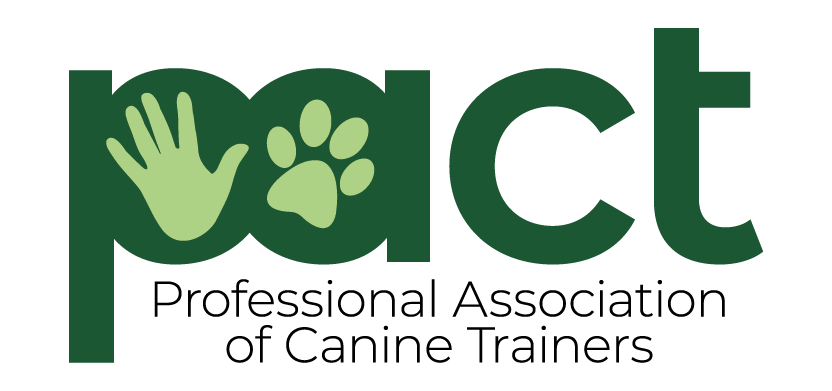
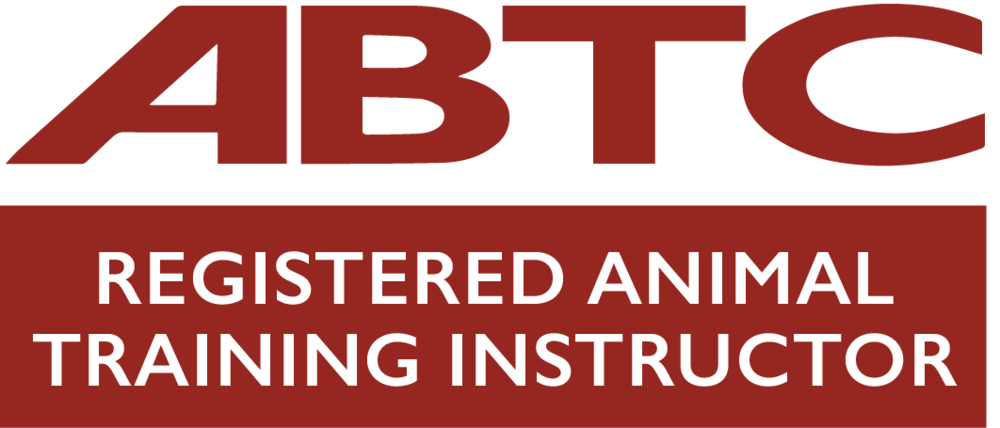
Copyright dog complex 2021

